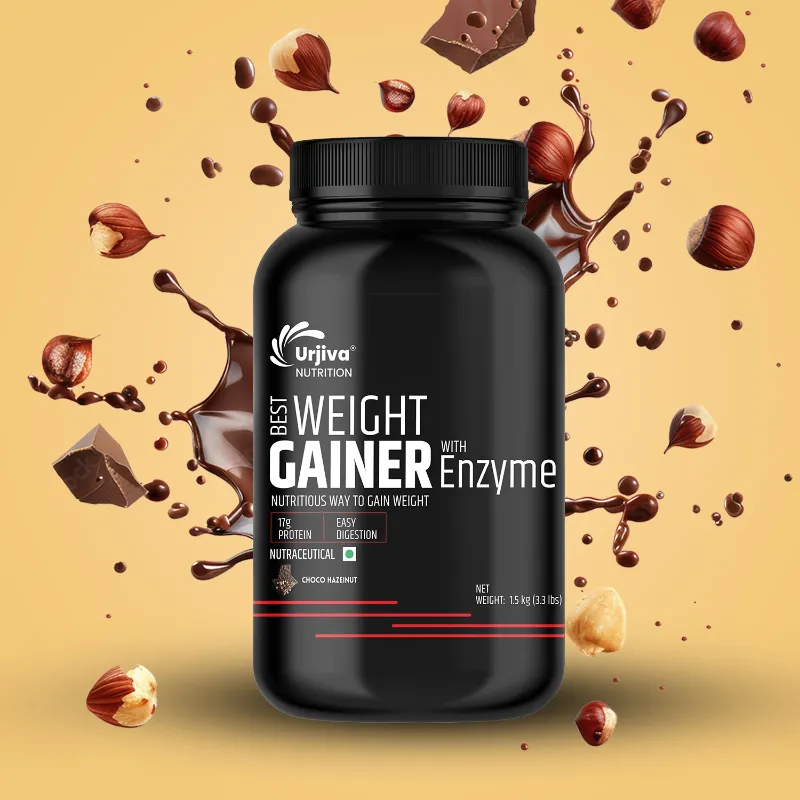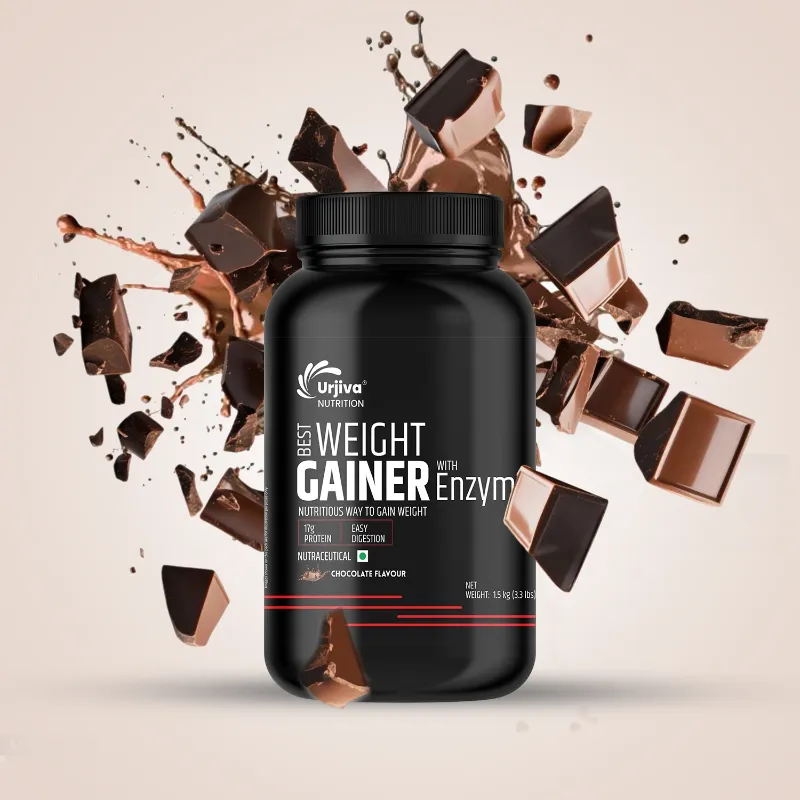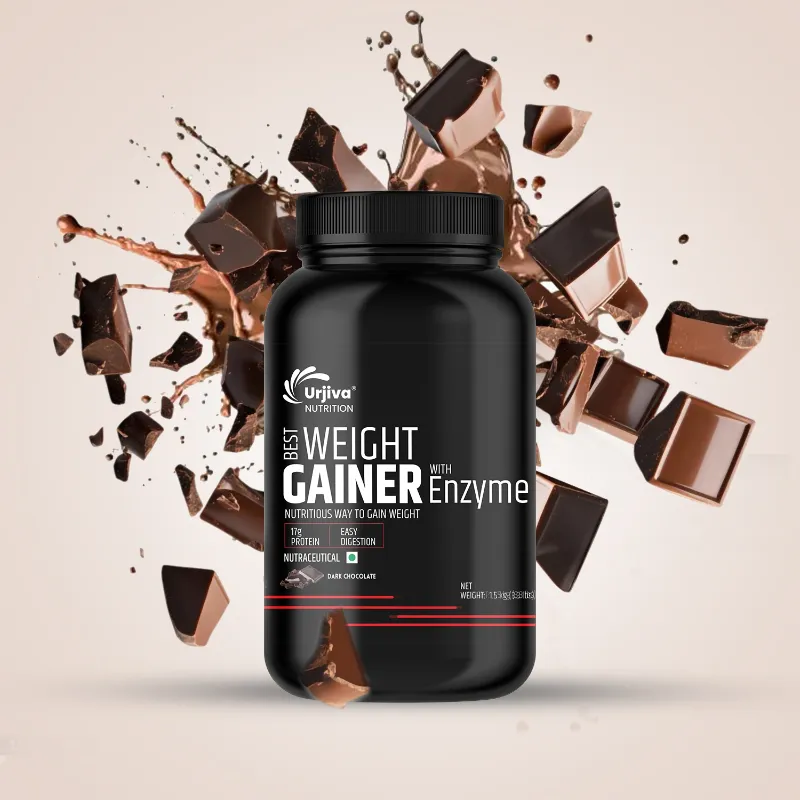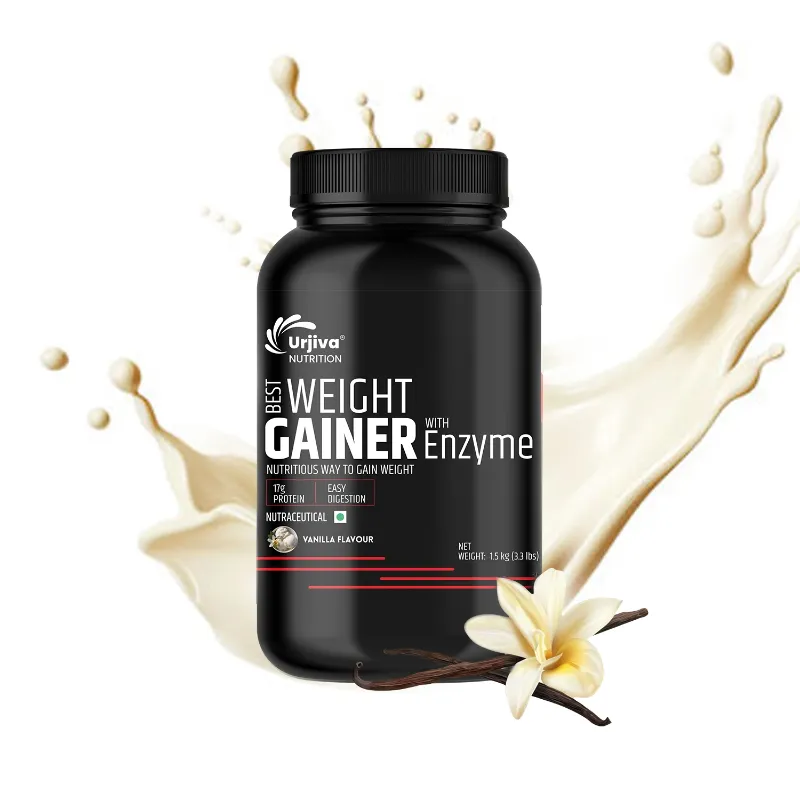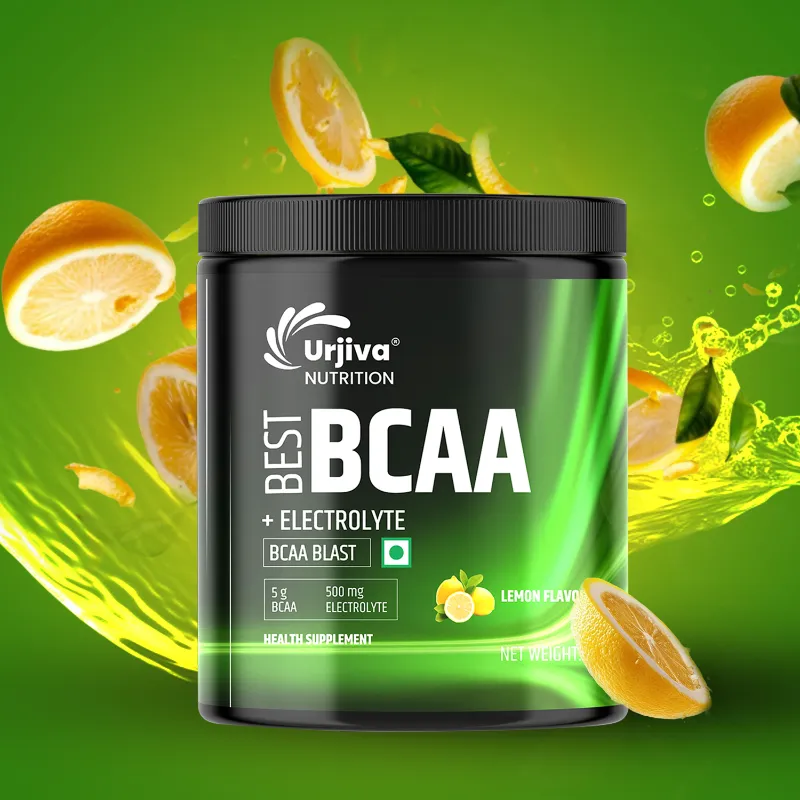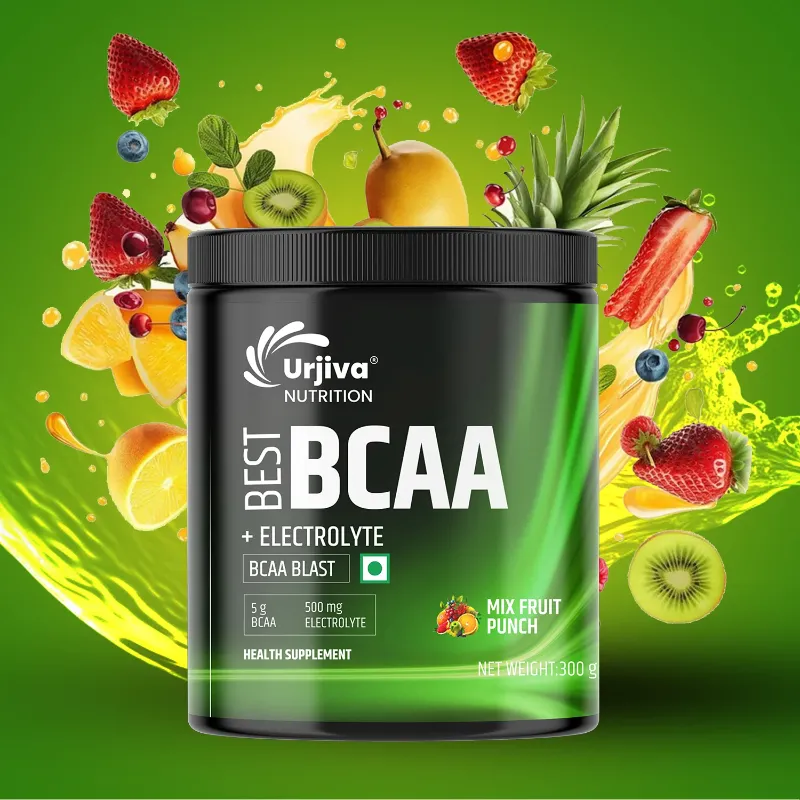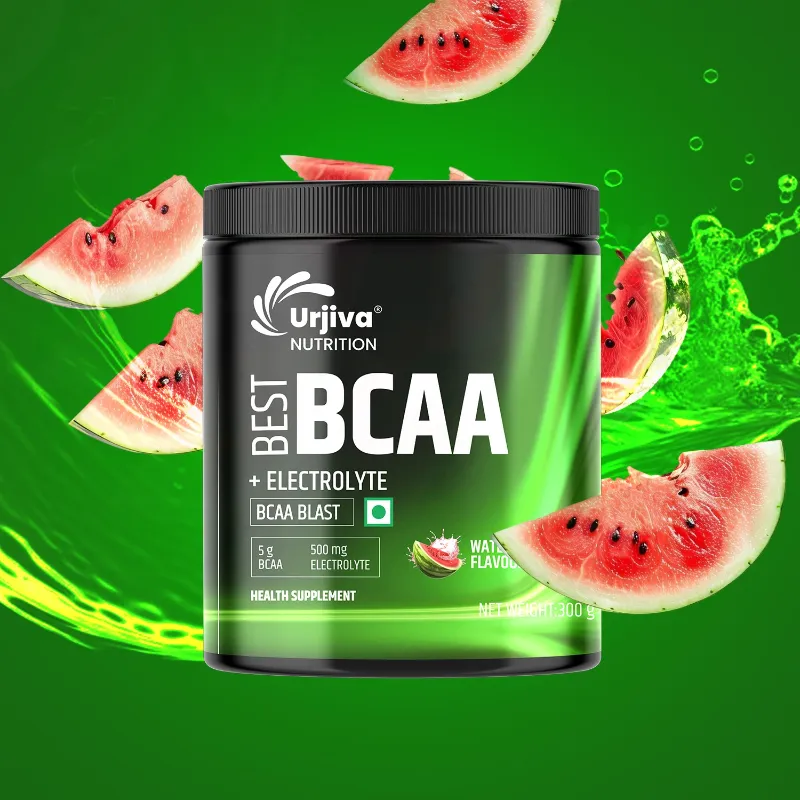Benefits of BCAA: Should You Take Them Before or After Your Workout?
If you're a fitness enthusiast, chances are you've heard of branched-chain amino acids, or BCAAs. They're the buzz at gyms and supplement shops, highly touted for enhancing performance and recovery. But when it comes to the Benefits of BCAA, there's one large question: should you take them before or after exercise? Timing may affect how effective BCAAs are, and in this blog, we'll get into the Benefits of BCAA for pre- and post-workout. We'll make it easy, interesting, and filled with science-based facts to guide you on what works best. Whether you lift weights, run, or do CrossFit, let's find out how the Benefits of BCAA can take your fitness to the next level.
What Are BCAAs?
BCAAs are three important amino acids that your body can't produce: leucine, isoleucine, and valine. You receive them through food (such as meat, eggs, or beans) or supplements. The Benefits of BCAA are due to their special structure, which enables them to be directly utilized by muscles for fuel and repair, unlike other amino acids metabolized by the liver. BCAA supplements are usually in powder, capsule, or liquid form, usually with a 2:1:1 ratio of leucine to isoleucine to valine.
Why are the Benefits of BCAA so trendy? They're responsible for building muscle through muscle protein synthesis, lowering muscle breakage, and recovery. Does it matter, though, when you take them? Let's deconstruct the Benefits of BCAA before and after exercise to see.
Why Timing is Everything for the Effects of BCAA
Your muscles are hungry for nutrients during and after exercise, and the Benefits of BCAA come alive when timed correctly. Resistance training or cardio puts your muscles to work, and they end up sustaining micro-tears and draining amino acid supplies. BCAAs deliver the building blocks to fix damage and power performance. Science indicates that consuming BCAAs during your workout—before, during, or after—can maximize the Benefits of BCAA by supplying amino acids when your muscles are starving for them.
The "anabolic window" (approximately 30-60 minutes after exercise) is when your muscles are ready to absorb nutrients, but pre-exercise timing also has benefits. Let's look at the Benefits of BCAA for both cases to determine which one is more effective.
Advantages of BCAA Pre-Workout
Drinking a BCAA beverage before your workout may not be top of mind, but the advantages of BCAA pre-workout are significant. Here's why:
Most Important Advantages of BCAA Pre-Workout
- Reduces Muscle Breakdown: The advantages of BCAA involve preventing muscles from being broken down during exercise. Leucine tells your body to maintain muscle, particularly when training in a fasted state or calorie deficit.
- Enhances Energy and Staying Power: BCAAs may be utilised as an energy source for muscles, holding up against weariness. The use of pre-workout BCAAs boosted endurance in 2017 sports study, mentioning the Advantages of BCAA in longer practice.
- Improves Concentration: The advantages of BCAA even include enhanced cognitive performance. Valine contends with tryptophan inside the brain and cuts down serotonin-connected weariness while making you mentally alert through workout.
- Kickstarts Recovery: To take BCAAs beforehand is to have amino acids in your body when you begin, laying the groundwork for quicker recovery—one of the best Advantages of BCAA.
How to Take BCAAs Before Exercise
- Timing: Consume your BCAA supplement 15-30 minutes prior to exercise to permit absorption. This optimizes the Benefits of BCAA during your workout.
- Dosage: Take 5-10g of BCAAs (read the label for serving size). A 2:1:1 ratio is typical for the Benefits of BCAA.
- Mixing: Combine BCAA powder with water for a cool drink. Flavored varieties make it fun, enhancing the Benefits of BCAA with hydration.
Who Should Pre-workout with BCAAs
The Benefits of BCAA pre-workout are perfect for:
- Individuals training fasted (e.g., morning training without breakfast).
- Individuals in a cutting phase or low-carb diet, where muscle breakdown is a concern.
- Endurance athletes (runners, cyclists) who require energy to be maintained.
Unless, of course, you had a protein meal 1-2 hours prior to training, then the Benefits of BCAA pre-workout may be less apparent, as your body already has amino acids in the blood.
Benefits of BCAA After a Workout
Post-workout BCAAs are the favorite of most, and the Benefits of BCAA following exercise are difficult to resist. After an intense workout, your muscles are ready for repair. Here's why post-workout timing is great:
Key Benefits of BCAA Post-Workout
- Increases Muscle Protein Synthesis: Leucine in BCAAs initiates muscle repair and growth. In 2019, a study revealed that post-workout BCAAs enhanced protein synthesis by 20-30%, a significant Benefit of BCAA for muscle gain.
- Reduces Muscle Soreness: The Benefits of BCAA are reducing delayed-onset muscle soreness (DOMS). Studies revealed that post-workout BCAAs decreased soreness by as much as 33% in lifters.
- Speeds Recovery: BCAAs replenish amino acids lost during exercise, helping muscles recover faster. This Benefit of BCAA means you’re ready for your next workout sooner.
- Supports Glycogen Replenishment: When paired with carbs, the Benefits of BCAA extend to restoring glycogen, your muscles’ energy stores, improving recovery.
How to Take BCAAs After Your Workout
- Timing: Consume BCAAs 30-60 minutes after your workout to take advantage of the anabolic window. The Benefits of BCAA are greatest when muscles are nutrient-starved.
- Dosage: 5-10g of BCAAs works. Pair with 20-40g of carbs (e.g., fruit or dextrose) to maximize the Benefits of BCAA.
- Mixing: Blend BCAA powder with water, juice, or a post-workout shake. Blending with protein powder increases the Benefits of BCAA for recovery.
Who Should Take BCAAs After?
The Benefits of BCAA after a workout are ideal for:
- Weightlifters or bodybuilders who focus on muscle growth.
- Individuals doing high-volume or high-intensity workouts that induce extreme muscle damage.
- Individuals with protein-based pre-workout meals, as post-workout BCAAs supplement present amino acids.
The catch? Late-night sessions followed by BCAAs can lead to very mild digestive issue in some people. In which case, pre-workout BCAAs might be a good choice.
Before vs. After: What Does Science Say?
So, which timing optimizes the Benefits of BCAA? The science tends marginally in favor of post-workout for muscle growth. A 2021 Frontiers in Physiology review discovered that post-workout BCAAs were superior to pre-workout at initiating muscle protein synthesis, particularly when paired with carbs or protein. Yet, pre-workout BCAAs performed best at inhibiting muscle breakdown during fasted or high-intensity exercise, expressing selective Benefits of BCAA.
The verdict? It's your goals and lifestyle:
- Muscle Growth: BCAAs during or after working out are modestly superior in inducing protein synthesis, a fundamental Benefit of BCAA.
- Muscle Preservation: Pre-workout BCAAs excel for trained fasting or for cutting cycles, another significant Benefit of BCAA.
- Both: Some athletes break their dose--5g prior, 5g post workout--for maximizing all Benefits of BCAA.
Your diet matters too. If you’re getting enough protein (1.6-2.2g per kg body weight daily), the Benefits of BCAA from supplements may be less critical, as whole foods provide similar amino acids.
Other Times to Take BCAAs for Maximum Benefits
While pre- and post-workout are prime times, the Benefits of BCAA can be tapped at other points:
- During Training: Drinking BCAAs intra-training maintains energy levels and minimizes fatigue, particularly for training sessions longer than 60 minutes. This Benefit of BCAA is excellent for endurance athletes.
- Between Meals: Consume BCAAs as a low-calorie snack to keep amino acid levels up, enhancing the Benefits of BCAA for muscle preservation.
- Before Sleeping: BCAAs may minimize overnight muscle damage, although casein protein is generally better. This Benefit of BCAA is appropriate for those who are in calorie deficit.
Spreading the Gains of BCAA throughout the day keeps your muscles filled and shielded.
How Much BCAA to Take?
Optimal BCAA dosage varies according to your body weight and desired goal. General recommendations:
- Standard Dosage: 5-10g per serving provides the Benefits of BCAA for most individuals. Read product labels for exact quantities.
- Body Weight: Use 0.05-0.1g per kg body weight (example: 4-8g for an 80kg individual). Divide doses for pre- and post-exercise to maximize the Benefits of BCAA.
- Training Intensity: Endurance or high-volume athletes can require 10-15g per day to maximize the Benefits of BCAA.
Begin with 5g and fine-tune according to how your body reacts to the Benefits of BCAA.
Selecting a High-Quality BCAA Supplement
In order to get the most out of the Benefits of BCAA, select a quality supplement:
- Ratio: A 2:1:1 (leucine:isoleucine:valine) ratio is best researched for the Benefits of BCAA. Some prefer 4:1:1 for additional leucine.
- Purity: Third-party testing (NSF or Informed-Sport) guarantees no banned substances.
- No Fillers: No BCAAs with unnecessary sugars or artificial ingredients. Pure formulas maximize the Benefits of BCAA.
- Form: Powders are convenient and inexpensive, and capsules are convenient. Select according to your preference for the Benefits of BCAA.
- Taste: Flavored BCAA beverages (e.g., citrus or berry) make consistency with the Benefits of BCAA simple.
Brands such as Urjiva, Scivation Xtend, and BulkSupplements provide excellent BCAAs that can effectively deliver the Benefits of BCAA.
Mixing BCAAs with Other Supplements
The Benefits of BCAA are enhanced when mixed with other supplements:
- Whey Protein: After a workout, mix BCAAs with whey for an entire amino acid profile. Whey is already rich in BCAAs, but additional ones can enhance the Benefits of BCAA.
- Creatine: Consume 3-5g creatine with BCAAs to increase strength and recovery, doubling down on the Benefits of BCAA.
- Carbs: Supplement post-workout BCAAs with dextrose or fruit for replenishment of glycogen, a principal Benefit of BCAA.
- Electrolytes: For enduro athletes, combine BCAAs with electrolyte beverages to replenish fluids and access the Benefits of BCAA.
A post-workout drink with BCAAs, whey, and carbs is a super-recovery powerhouse for the Benefits of BCAA.
Myths About the Benefits of BCAA
As popular as BCAAs are, myths cloud the Benefits of BCAA. Let's dispel them:
- Myth: BCAAs Are Only for Bodybuilders: The Benefits of BCAA benefit runners, cyclists, or anyone who's active.
- Myth: BCAAs Replace Protein: BCAAs supplement, not substitute, whole proteins. The Benefits of BCAA are added.
- Myth: They Cause Weight Gain: BCAAs are low-calorie and do not contribute to fat. Their Benefits of BCAA are centered on muscle.
- Myth: Timing Is Critical: Although timing optimizes the Benefits of BCAA, overall daily protein consumption is more important.
Potential Side Effects of BCAAs
Advantages of BCAA have limited risks for individuals. Potential side effects:
- Digestive Discomfort: Large doses (20g+) can lead to nausea or bloating. Limit to 5-10g for the Advantage of BCAA.
- Interactions: BCAAs can have an impact on blood sugar or drugs. Please consult a doctor if you are suffering from diseases.
- Overuse: Too much BCAAs without sufficient other amino acids can interfere with protein synthesis. Balance with whole foods for the Benefits of BCAA.
Begin with a low dose to test tolerance and achieve the Benefits of BCAA safely.
Tips for Maximizing the Benefits of BCAA
To maximize the benefits of the Benefits of BCAA, try these:
- Consistency: Take BCAAs every day, particularly before and after exercise, to keep amino acid levels and the Benefits of BCAA consistent.
- Pair with Training: Benefits of BCAA are highest with resistance or endurance training (3-5 days/week).
- Monitor Protein Intake: Target 1.6-2.2g protein per kg body weight per day. BCAAs supplement, not substitute, this for the Benefits of BCAA.
- Experiment: Experiment with pre-, intra-, or post-workout BCAAs to determine what best optimizes the Benefits of BCAA for you.
- Hydrate: Consume water with BCAAs to facilitate absorption and enhance the Benefits of BCAA for recovery.
To harness the Benefits of BCAA, we recommend Urjiva’s Premium BCAA Powder. This high-quality supplement delivers a 2:1:1 ratio of leucine, isoleucine, and valine, with 7g of BCAAs per serving, perfect for pre- or post-workout use. It’s third-party tested, free of artificial fillers, and comes in refreshing flavors like tropical punch. As a women-owned brand, Urjiva is dedicated to empowering your fitness journey with science-backed nutrition. Add Urjiva’s BCAA Powder to your routine and unlock the full Benefits of BCAA for performance and recovery.
Frequently Asked Questions (FAQs)
What are the Benefits of BCAA?
They reduce muscle breakdown, boost recovery, and enhance muscle growth.Are BCAAs better before or after a workout?
Post-workout maximizes muscle growth, but pre-workout helps prevent breakdown—both offer Benefits of BCAA.How much BCAA should I take?
5-10g per serving, ideally around workouts, for the Benefits of BCAA.Can women use BCAAs?
Yes, the Benefits of BCAA support muscle recovery and performance for women.Do BCAAs cause bloating?
Rarely, at high doses. Stick to 5-10g for the Benefits of BCAA without issues.Are the Benefits of BCAA worth it if I eat protein?
Yes, for fasted training or intense workouts, but whole proteins also provide BCAAs.Can I take BCAAs without working out?
Yes, but the Benefits of BCAA are most pronounced with exercise.Are BCAAs safe?
Yes, at recommended doses, the Benefits of BCAA are safe for healthy people.Can I mix BCAAs with other supplements?
Yes, combine with whey, creatine, or carbs to enhance the Benefits of BCAA.How long to see the Benefits of BCAA?
Reduced soreness in days; muscle gains in 4-8 weeks with consistent use.



